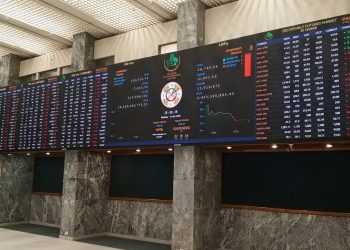PARIS: Even by the extreme standards of cryptocurrency trading, the past few weeks have been a wild ride for Binance, the world’s biggest exchange for crypto assets.
After the collapse of its rival FTX in a hail of allegations of fraud and criminality last month, trust in the entire sector has crumbled.
Customers pulled more than $3 billion from Binance in a single day last week as part of a three-day frenzy that saw more than $6 billion withdrawn.
On Friday, accountancy firm Mazars, engaged by Binance to provide a “proof of reserves” report, abruptly halted work with all crypto firms because of “public misunderstanding” of what they were providing.
A “proof of reserves” report is not a full audit and gives no information about liabilities.
Media reports suggested US prosecutors were still weighing up money-laundering and sanctions-busting charges against the company and possibly its co-founder and CEO Changpeng Zhao. The firm has refused to comment on the inquiry.
“It is absolutely vital that Binance survives,” said Dan Ashmore, an analyst at Invezz crypto investment firm.
“Any sort of demise would be a devastating blow for crypto, and would likely pull a massive chunk of the industry down with it.”
For Leigh Drogen of Starkiller Capital, it would be “armageddon” for short-term crypto asset prices if Binance collapsed.
Zhao’s public appearances have hardly helped to calm the jitters. In one recent interview with CNBC he claimed the firm “kind of forgot” about part of a $2.1 billion payment that Binance received from FTX last year.
Zhao said a “big chunk” had been paid in FTX’s now worthless in-house token, but sat untouched for 18 months before Binance remembered and transferred the sum, then worth $580 million.
“Is forgetting about over half a billion dollars supposed to make me feel more confident in Binance’s ability to properly run an exchange,” Genevieve Roch-Decter of Grit Capital wrote in an opinion piece for Coindesk, a crypto news outlet.
Critics point out that Zhao is prone to making confusing and sometimes contradictory public statements.
He claims to want transparency but Binance refuses to divulge even basic company information such as where it is registered, let alone submit to a full audit, like a publicly-traded firm would have to undergo.
Zhao cosies up to regulators in some jurisdictions but reportedly keeps his main business well away from prying eyes in the Cayman Islands.



































